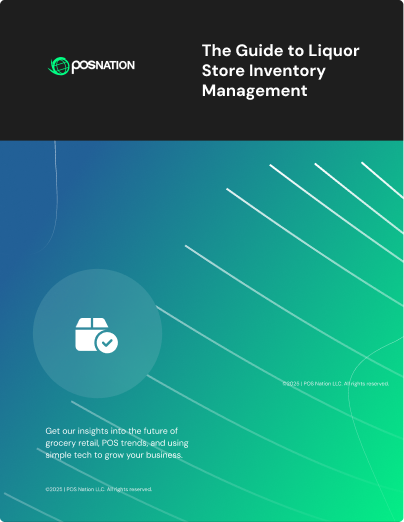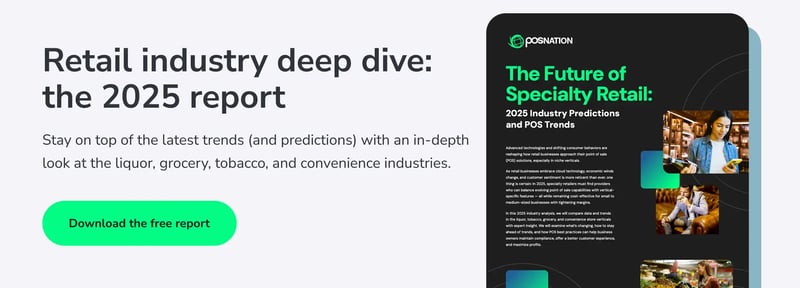Inventory costs might be going up, but liquor is still a profitable business venture in the Sunshine State.
If you’re thinking of opening a package store in Florida, one of the most important tasks you’ll need to do is get your Florida liquor license. But how much should you budget? And which type of license do you need?
In this blog, we’ll review the types of liquor licenses available in Florida — plus, we’ll give you an adjusted breakdown of the costs associated with each.
How Much Does a Florida Liquor License Cost?
The annual cost of a liquor license in Florida can range from $28 to $1,820, depending on the type of liquor you plan to sell or distribute. You’ll also need to pay initial application fees, which can vary.
Why such a wide range of fees? Like all states, Florida has different licenses for off-premises (e.g. package stores, wine shops) and on-premises alcohol sales (e.g. bars, restaurants).
Additionally, for package stores or other off-premises retailers, there are different licenses available based on what you sell (e.g. beer and wine, or beer, wine, and spirits). Stores that plan to sell spirits must apply for a Quota License. These are awarded once a year via a lottery drawing and are limited to a certain number per area.
In most cases, the average cost of applying for a new liquor license in Florida amounts to more than $2,500. As a best practice, consider budgeting 10% to 15% above this figure.
Main Types of Florida Liquor Licenses
Determining which liquor license applies to your business is half the battle. There are five main types of liquor licenses in Florida, including:
- Retail licenses: There are 41 different licenses available for off- and on-premises alcohol sales, ranging from package stores and wine shops to clubs and performing arts centers. The costs can range from $50 to $2,500. This is why it’s vital to know exactly what type of license your business needs before getting too far into the application process.
- Quota Beverage License: Any business selling beer, wine, and liquor for consumption (on- or off-premises) must have a Quota License. There are a limited number of licenses, and the only way to obtain one is to either purchase an existing one or enter the annual lottery. There are also additional application fees that apply to quota licenses.
- Salesperson of Wine & Spirits licenses: Individuals employed by a wholesale distributor require a license to be able to sell wine or distilled spirits. The fee for this salesperson license is $50 per person and involves undergoing a background check to qualify.
- Manufacturers/distributors licenses: This license is for distillers, brewers, wholesalers, and passenger/carriers licenses (e.g. buses, railroad masters, steamships). The costs for these licenses range from $100 to $1,000.
- Miscellaneous licenses: There are many miscellaneous liquor licenses in Florida that range from $0 to $100. These licenses include sacramental wine licenses used in places of worship, warehousing licenses, storage licenses, and pool buying group licenses.
Quota Beverage Licenses Explained
One of the quirks of Florida liquor law is that there aren’t an unlimited number of liquor licenses, at least if you plan to sell spirits.
The Quota License is highly sought after among package stores, as the number of available licenses is determined by the county population. Specifically, the state usually allocates one license for every 7,500 residents.
To get a quota license, you can either enter the annual quota lottery drawing or buy an existing license. Obtaining a new Quota License requires paying a one-time Hughes Act fee of $10,750. If you’re transferring a license, you need to pay a transfer fee of up to $5,000, in addition to the sales price of the license itself. The state does not set the price for quota licenses sold on the open market, so the price of the license itself will vary depending on who’s selling it.
Remember: The Quota License only applies to people selling spirits. If you plan to only sell beer and wine, either as a standalone business or in a convenience store, there are no restrictions on the number of licenses. If you know your craft beer and wines, this can be a great way to get started.
If you own a restaurant and want to sell drinks, you’re in luck! There’s also a special restaurant alcoholic beverage license that serves as an exception to the quota rules for selling spirits.
How To Get a Florida Liquor License
To apply for a Florida liquor license, you are now required to use the DBPR’s online system. In addition to paying the licensing fees, you need:
- Local zoning approval
- Sales tax license
- Business and tax ID information (including related parties such as co-owners and investors)
- Lease agreement, deed, or other proof of occupancy for your business location
- A sketch of the location (showing different rooms, walls, doors, windows, counters, etc.)
- Fingerprints (the DBPR has a suggested service provider)
The application takes a maximum of 90 days to process, and the more complete your application is, the more likely it is to be processed quickly.
An important note: We are liquor retail experts, not liquor legal experts — please double-check the full requirements with the DPBA before applying.
Related Read: Sole Proprietorship Examples (+ 4 Essential Tools for Small Retailers)
Getting Your Liquor License Is Only The Beginning — Now You Have To Succeed
Getting a liquor license in Florida is a tricky and often confusing process. Once you get it, we don’t blame you for wanting to kick your feet up and relax.
The hard work is just beginning. Now that you’ve got your liquor license, it’s time to make your package store a success. There are three major points to keep on top of:
- Customer experience: Long-term success depends on retaining customers. That means running creative promotions, offering customer loyalty programs, and making browsing your store a fun experience.
- Inventory processes: Liquor stores carry thousands of unique items, and finding ways to simplify how you track stock, create purchase orders, and do merchandise planning is essential.
- Compliance: You worked hard to get your liquor license — don’t lose it because of an underage sale or failure to report.
The right technology makes all the difference. At POS Nation, we’re passionate about matching small business owners with the industry-specific systems that can help make their lives easier and boost profits.
To learn more about finding the right package store POS system for your business, schedule a demo today.








 by Graham Hoffman
by Graham Hoffman



 by Cort Ouzts
by Cort Ouzts